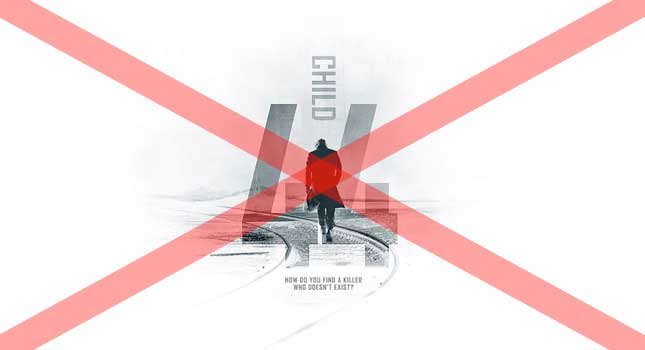
The ministry, who we’ll be referring to as the children of 1984 from here on in (the children for short), announced their intention to ban the movie on the 15th April 2015, just a couple of days before it was about to be screened. Child 44, which will be released on the big screen today (17th April 2015) for the rest of the world’s cinema going population, takes place in Stalin-era Russia though it’s not meant to be a factual representation of events, it provides some stark parallel lines to mull over.
For us it doesn’t massively matter how accurate the movie is to historical facts, as it should be allowed to be screened as a part of an open and free society that allows people to understand things from a number of different standpoints. The Imitation Game, for example, is riddled with inconsistencies and criticism of the UK military and government officials (check out our review for more info), but you didn’t see Sajid Javid pulling it from the big screen like some kind of mad Big Brother style cultural Nazi on heat.
The concern for us is that it sends a message to the wonderful people of Russia that they are not fully functioning enough to be able to see a film like Child 44 and come to their own conclusions, perhaps even do their own historical reading to understand the situation better, as we did when we watched The Imitation Game DVD. It leads to a big implication that the culture ministry and the Vladimir Putin-led government that sits behind it, has decided to adopt a nanny state mentality, instead of looking to the old brilliance of Glasnost and Perestroika for a little genius insight.
It also means that the rest of the world will have yet more confirmation that Russia is closing the lid on free ideas, political openness and forward thinking policies. However, and perhaps more importantly to the decision making behind the ban, it will also mean that Child 44 will pick up even more coverage and media attention and so will probably be watched by even people in the long run. Sadly it’s probably too much to hope that it might be the children of 84’s version of reverse psychology.
If, on the other hand, they had decided to allow the movie to be screened, but condemned it in the media for inaccuracies – like they did at Craggy Island when The Passion Of Saint Tibulus was being screened – at least they wouldn’t have been seen as being so dictatorial in their outlook to cinema. For us in the UK, it’s a bit of a throwback to the local authority bans of The Life of Brian back in 1979, but then that was more to do with the British stiff upper lip with respect to blasphemy at the time as opposed to covering over the cracks of the past.
Having seen the film, which stars Tom Hardy (Mad Max: Fury Road) and Gary Oldman (Tinker Taylor, Soldier, Spy (2011)), we can say that there’s nothing in it that’s so contentious as to warrant it being banned in any way shape or form. What we’re struck by is the inability of the Russian government to face up to the shadow of the memories of the past in a way that adds weight to the brilliance of Kazuo Ishiguro’s The Buried Giant. The movie is meant to be a work of fiction loosely based on real life events, but with credible criticism of Satlin-era politics, as was the Tom Rob Smith book that inspired it, which shouldn’t by that much to bear for the kids of ’84. Based on these events, if his most recent book, The Farm, is ever made into a movie, we should probably expect it to be banned in Sweden due to its peculiar interpretation of Swedish rural life.


